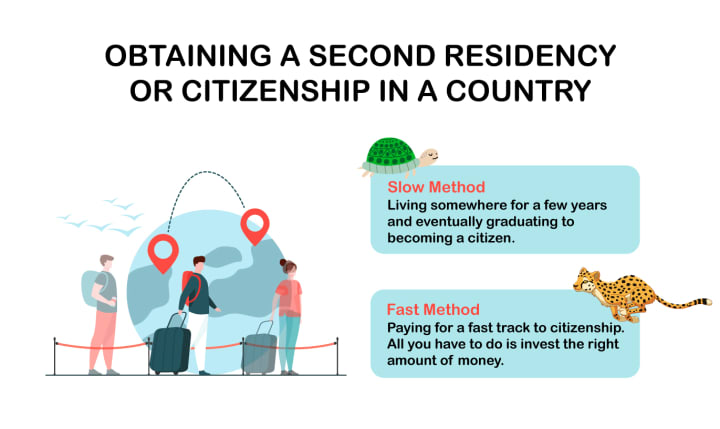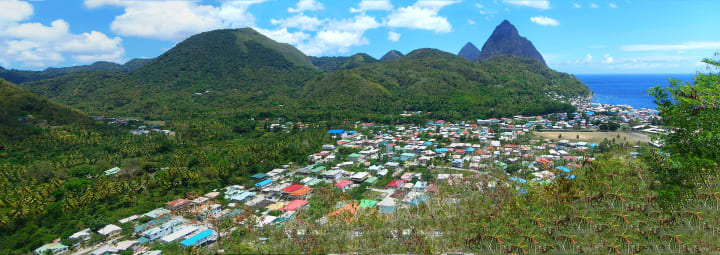Cryptocurrency and Your Plan B
Investments in cryptocurrencies have proven lucrative for a lot of people. If you've found yourself with some new crypto wealth, it is still important to know how to protect it properly.
I recently attended the Miami Crypto Experience and as the name would indicate, it was indeed a great experience. There was no shortage of enthusiasm there about Bitcoin and other cryptocurrencies, and that is quite understandable considering the successes that they reported having with these currencies in recent years. An incredible movement has been spawned, which has snowballed as more people get involved and recognize cryptocurrency as a store of value, in turn driving the currency even higher. As many have encountered newfound wealth, it is only natural that they begin thinking about how to protect that wealth. If we couple that with the changes that our capital-gains structures will be experiencing, particularly over the course of the next year, along with the events and instability of the past year, we can begin to understand the importance of protecting our assets even more.
Now, when it comes to protecting your assets, it is important to first emphasize that your most important asset is you, and that means having a plan B for where you can live and travel by having a secondary residence or citizenship. In the past, many may have gotten used to traveling the world as they please. If there is one thing that this past year has shown, it is that travel and freedom of movement are not something that can be taken for granted. In fact, the US passport diminished in value quite rapidly, as it went at one point from being valid in 155 countries without a visa to just 26. That means that there were 130 countries that you could not travel to as a tourist. However, you would have been able to go there if you had previously been granted a passport or residency card for that country. So, Plan B, i.e., looking for options for where you can obtain another residency or citizenship (or even a few) around the world while also protecting any wealth you have, has become a hot topic.
How Can You Obtain a Second Residency or Citizenship?
There are really two methods to obtaining a second residency or citizenship in a country—slow and cheaper or fast and more expensive. The slow, cheaper method allows you to become a resident by living somewhere for a few years and eventually graduating to becoming a citizen. The fast, more expensive method often involves a specific investment or payment.

Nearly every country in the world has a citizenship-by-investment program that allows you to pay for a fast track to citizenship. This is not something controversial. Even the US has one with its EB-5 and E-2 visas. All you have to do is invest the right amount of money (about $1.8 million), and you can get it. Canada has a similar program in Quebec. The US and Canada may not promote these programs, but no country wants to turn off such a great financial spigot, if there are people willing to put in that kind of money.
My Favorite Programs
There are plenty of countries, however, where obtaining citizenship is not nearly that expensive, such as in the Caribbean. In fact, you don't have to have millions of dollars at all.
Two programs that are very interesting to me are in St. Lucia and Dominica. In 2020, St. Lucia decided to leverage the pandemic and create the "Covid bond." For $250,000, you can buy a bond that pays zero interest but grants you immediate citizenship. (If you're concerned about it not paying any interest, keep in mind that regular bonds only pay 2-3% anyway. You also receive this bond back in full five years later.) Another reason I really like St. Lucia is its recognition of how difficult it has been for people to travel and its willingness to help by making the process seamless and virtual. All you have to do is send the paperwork via FedEx and agree to an interview on Zoom.

Dominica, a unique and beautiful island in the Caribbean, has the lowest threshold for gaining citizenship based on a real estate purchase—$250,000 (as opposed to St. Kitts, for example, where you have to purchase some $400,000 worth of real estate).
A Focus on Crypto Wealth
Specifically, for those who have dipped into the cryptocurrency investment trend and have come out on the upside, Portugal is a great country to consider. It clearly wants to attract people from the tech world, investors of a wide variety, and those who have succeeded through crypto in particular. Actually, it recently set off competition for such investors by exempting cryptocurrency gains from paying Portuguese tax. They are trying to show how much they value the crypto community. Do you think other countries are going to stand by and let Portugal do that on its own? Probably not. Now, when cryptocurrencies were worth some $500, nobody cared. As crypto goes up, though, these programs will only become more popular. In Portugal, you can get residence and then citizenship within just five years. They want you there because they care about what you will do for the local economy.
Finally, another good country with a lot of advantages for residency and citizenship is Belize. It has an investor residency program where you don’t have to spend a lot of time there to maintain it.
Traditional Structures Still Relevant as Ever
The world of crypto may be new, but at the end of the day, it is just a tool to gain wealth. And once you gain wealth, it is of utmost importance to protect it. To use an American football example, defense is often the best offense. When it comes to protecting wealth, traditional structures and strategies always remain applicable, whether this is through setting up an offshore trust or establishing a second residency. And after a year like 2020, these have never been more relevant.
About the Creator
Joel Nagel
Joel Nagel is an American lawyer, entrepreneur, speaker, proud father and has previously served as Belize's Ambassador. Nagel specializes in international commercial transactions, international law, asset protection, and estate planning.






Comments
There are no comments for this story
Be the first to respond and start the conversation.